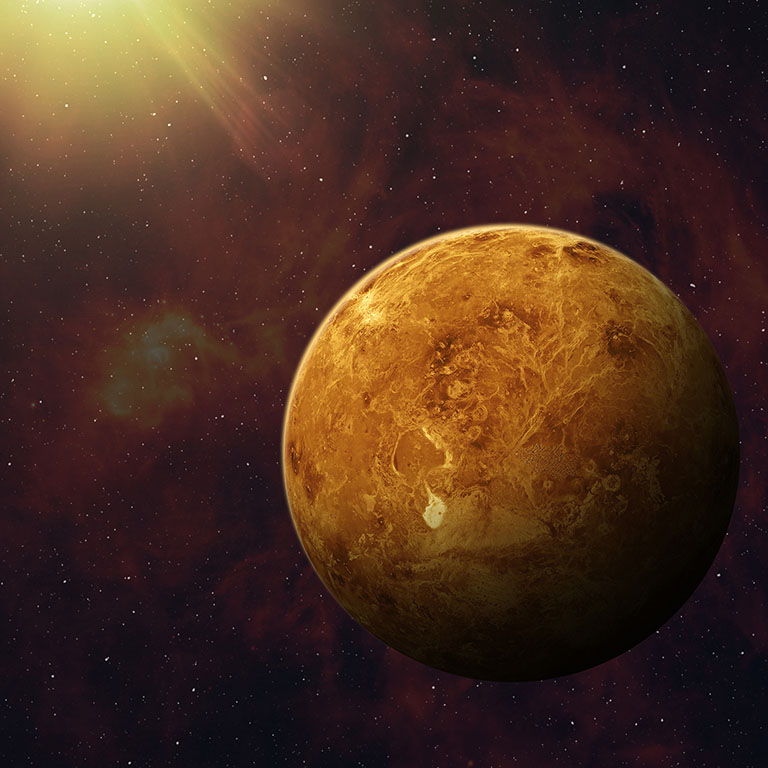BLOOMINGTON, Ind. -- The shorter nights of summer will still offer a variety of sights for skywatchers.
Mercury and Venus, the two innermost planets, will put on an evening show in July. Try to spot them soon after sunset.
The first planet to set after the sun on July 1 will be Venus. It will be challenging to find in bright twilight, standing only 2 degrees above the western horizon 15 minutes after sunset. By the end of July, Venus will be nearly 16 degrees east of the sun but still hugging the horizon. Those scanning the horizon with binoculars may spot the bright star Regulus 5 degrees east of Venus.
The planet Mercury will be nearby, at the same altitude as Venus and 5 degrees south of Regulus. As the sky darkens, Mercury will be easy to spot. Mercury will fade from view as its distance from the sun increases until on July 22 the planet will be 5 degrees high 40 minutes after sunset, a good time to spot it.
Saturn will rise at midnight on July 1 and will brighten noticeably by the end of the month. Its rings will appear nearly edge-on through a telescope.
The next planet up will be Mars, rising just before 2 a.m. local daylight time on July 1. The Red Planet will be 15 degrees from the Pleiades star cluster, moving from the constellation Aries into the constellation Taurus by July 12.
Jupiter will rise at 3:30 a.m. on July 1. A telescope will give fine views of the planet's dark equatorial belts. The stable air of early morning can offer outstanding views rarely provided by evening observations that follow the heat of the day.
Meteor showerThe Southern Delta Aquariid meteor shower will peak before dawn on July 31. In a dark sky observers may see as many as 25 meteors per hour at the peak, though some meteors will appear from mid-July to mid-August. The long bright streaks will seem to come from a point in the constellation Aquarius in the southern sky.
AphelionEarth will reach its greatest distance from the sun for the year, called aphelion, on July 5. Those sweltering in summer heat in the Northern Hemisphere may find it hard to believe they are about 3 percent farther from the sun than they were in January. But the actual cause of the high temperatures is the tilt of Earth's axis. The part of the planet tilted toward the sun (in this case the Northern Hemisphere) is much warmer than the part tilted away, because more sunlight reaches the ground instead of being absorbed by the atmosphere.
Moon phasesThe moon will be new on July 5, at first quarter on July 13, full on July 21, and at last quarter on July 27.
Author: Hal Kibbey Email: hkibbey [at] gmail.com


 The College of Arts
The College of Arts